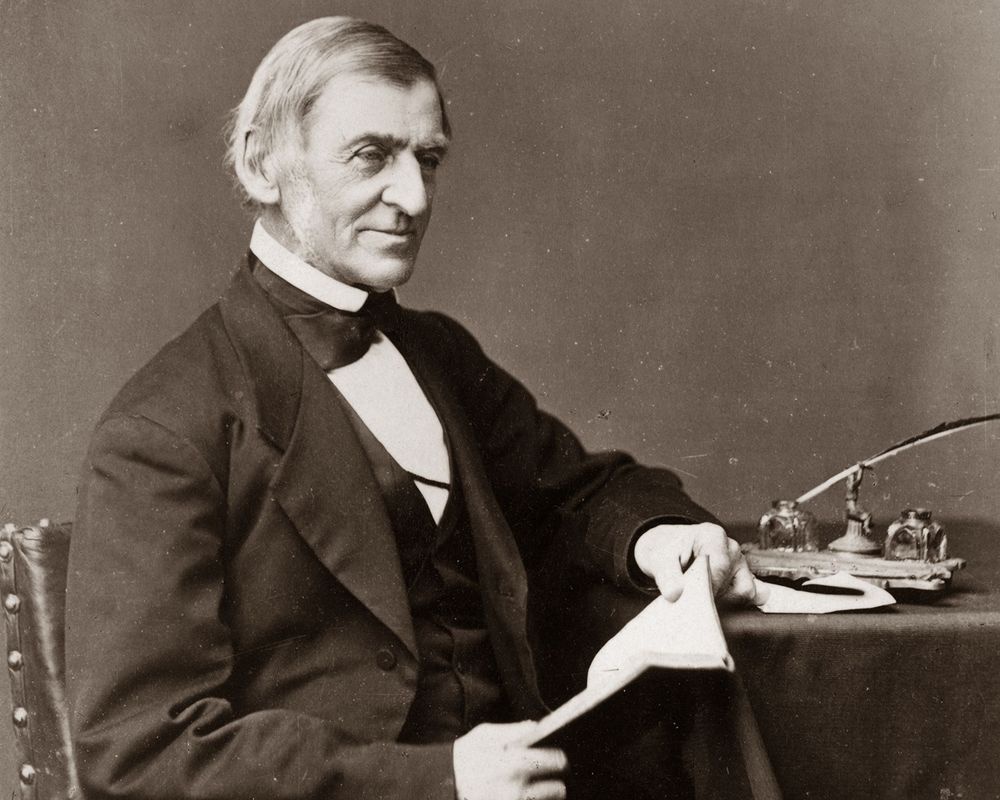In “Self-Reliance,” Emerson says that “[w]hat I must do … not what the people think … may serve [as the rule] for the whole difference between greatness and meanness.” Later he adds that “we have not chosen [our occupations] but society has chosen for us.”
If the problem is that society has chosen our occupations for us, then the remedy would seem to be for us to choose for ourselves. But that’s not quite right, because the choice of an occupation – or rather, a vocation or calling – is importantly different from the ordinary exercise of free will.
In “Spiritual Laws” Emerson writes:
I say, do not choose; this is a figure of speech by which I would distinguish what is commonly called choice among men, and which is a partial act, the choice of the hands, of the eyes, of the appetites, and not a whole act of the man. But that which I call right or goodness, is the choice of my constitution; and that which I call heaven, and inwardly aspire after, is the state or circumstance desirable to my constitution; and the action which I in all my years tend to do, is the work for my faculties.
The “work for my faculties” is my vocation or calling. The choice of vocation is not accomplished by “what is commonly called choice” but is rather “the choice of my constitution,” i.e. of my whole self. A vocation chosen by one’s “whole self” is one that defines oneself, and in that way it is more like an unconditional commitment than a decision, relative to the circumstances, to take one course of action rather than another. Committing oneself to a calling is something like yielding to necessity.
This is why, in the quotation from “Self-Reliance,” Emerson juxtaposes, to “what people think,” not what I choose to do but rather “what I must do.” It is also why only the whole self can choose “the work for my faculties”: work of my faculties is generic and could be any kind of work, but the work for which my faculties were (so to speak) designed, the work I’m meant to do, is that which defines me as a unique individual.
If “choices” of constitution are identity-defining because they are unconditional, then “partial choices” are conditional. Because one may always withdraw from a conditional commitment if conditions change – for example, if something better comes along – one doesn’t carry out such commitments wholeheartedly. To be able to withdraw, something of oneself must be held back. The chooser must be kept distinct from what it has chosen.
In a liberal democratic society, association with others is typically conditional. We are parties to a contract. This renders everything about us ambiguous, since only an unconditional commitment would indicate who we must be. There’s a real sense in which, as members of society, we’re “not all there.” To conform is not so much to be stuck in one conventional way of doing things as it is to be ready to become anything and everything society demands.


